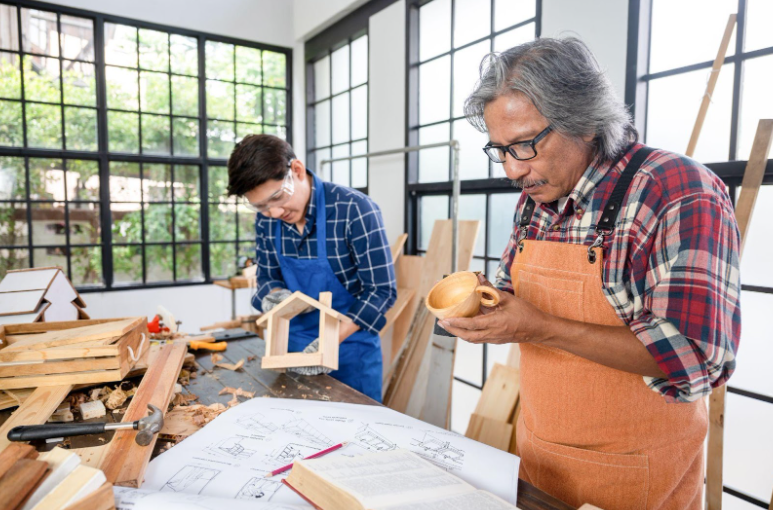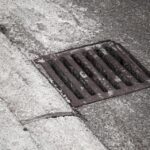A concrete hardstand is a paved area used to support heavy vehicles. It is usually made from concrete, asphalt, or gravel, the same excellent materials professionals use to make concrete driveways in Melbourne. Hardstands are often used in industrial and commercial settings to provide a stable surface for loading and unloading goods and parking vehicles. Today’s blog post will discuss everything you need to know about concrete hardstands, including their benefits and drawbacks.
Table of Contents
What is a Hardstand?
A hardstand is a big, paved area where cars, heavy trucks, and machinery are parked. Hardstands are thicker and more durable than traditional parking surfaces, such as compacted foundation material, and intend to withstand long periods of use.
A hardstand must support the continuous weight of big trucks and equipment without sinking, as sand, concrete, or grass may. They may also be required to keep the long-term storage of pallets and containers with high-point loadings, such as containers with short feet.
Why Use Hardstands?
Installing a hardstand area protects your expensive assets from damage caused by fractured surfaces, stone chips, sand, or grime. You won’t have to worry about vehicles getting stuck or the high maintenance expenses associated with less durable surfaces.
Hardstands are ideal for parking large vehicles, machinery, plant, and storage containers for extended periods or when vehicle activity is constant:
- Yards for industrial purposes
- Personal or commercial storage yards for boats
- Auto auctions
- Vehicle storage facilities
A hardstand enhances the overall appearance, practicality, and safety of your company’s long-term parking and heavy vehicle spaces. The exterior is the first thing consumers notice be about your business/company place as they pull into the parking lot. So, maintaining it should be your priority, and using a concrete hardstand is the best way to do so.
Best Material to Use for Hardstands
Concrete contractors in Melbourne use a variety of materials to make a hardstand. Concrete, asphalt, gravel, roadbase, and limestone are the most frequent.
Choose hot mix asphalt for a hardstand that can withstand high traffic from trucks, plants, machinery, and storage containers. It is a high-temperature combination of aggregate and bitumen binder put over a compacted foundation layer.
Advantages of Using Concrete Hardstands
1. Environmentally-Friendly
Concrete is ecologically beneficial, something many people are unaware of. It eliminates the need for lengthy transit periods, reducing our carbon impact. In addition, when cured, concrete is entirely inert, which means it will not emit:
- Gas
- Toxic substances
- Volatile organic substances
Concrete is also completely recyclable. It may be crushed into small bits and combined with other minerals to make aggregate. The experts use aggregate to protect shorelines, which are the foundation for many constructions. It minimises the quantity of garbage transported to a landfill, which benefits the environment even more and reduces the carbon footprints .
2. Cost-Effective
Concrete is easy to maintain due to its excellent durability and resilience, frequently surviving decades without needing reconstruction work. Because of its well-known strength, insurance premiums for buildings or other structures constructed of concrete will be lower than for buildings built of other, more fragile or flammable materials. Concrete’s inexpensive cost and durability make it a prevalent material in the building business.
3. Durability
Concrete’s strong, lasting characteristics make it ideal for many purposes and applications in the building sector. Concrete will give a solid, dependable answer whether you’re planning a residential or business project. Concrete constructions withstand the test of time, frequently lasting many years with little upkeep; the same applies to concrete hardstands.
4. Energy Efficiency
Concrete can store energy, which aids in regulating temperatures within a concrete structure. As a result, heating and cooling needs (especially for significant structures) will get reduced, saving you money. Because of its high energy efficiency, the concreters use it in conjunction with different heating and cooling methods. They also use it for heated floor systems for geothermal heating and cooling system of hydronic heating.
5. Versatility
Concrete, although strong, durable, and extremely tough when solidified, can be altered and sculpted into various shapes and forms for hardstand and expert driveways in Melbourne. Furthermore, concrete is available in multiple textures, each with a unique finish. Concrete can give maximum adaptability, making it the ideal building material for your every demand, whether you want a smooth or decorative surface.
Disadvantages of Concrete Hardstands
Concrete has the following disadvantages:
- Concrete has poor tensile strength and must be strengthened in the concrete tensile zone using reinforcing bars.
- For casting and moulding, as well as holding the concrete in place until it cures sufficiently, costly formwork is necessary.
- Concrete’s poor strength per unit weight results in hefty members, a crucial concern for tall buildings and long-span constructions, resulting in concrete drawbacks.
- Because of differences in proportioning and mixing, the characteristics of concrete vary greatly.
- Concrete installation and curing are not as well-managed as other materials like structural steel and laminated wood.
- Another disadvantage of concrete is that it is brittle.
- Concrete is semi-brittle and has a strain-softening property.
- Shrinkage of concrete results in loss of strength.
- Concrete necessitates using formwork to mould it and sustain its weight.
Roadseal Civil: Professional Hardstand Installers
Concrete hardstands are an excellent choice for industrial and commercial settings because they are durable, low-maintenance, slip-resistant, and versatile. However, they can be expensive to install and difficult to repair, if damaged. Weigh the pros and cons before making your final decision. Our expert concrete contractors at Roadseal Civil can help you make the right choice, so connect soon!
Also Know About: The Inspire SPY











